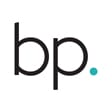Model-Based Planning®
Asking the right questions is one of the most difficult aspects of business planning, so Brent Butler developed the strategic approach known as “Model-Based Planning®.” In business, where no two companies are exactly alike, generic questions often lead to generic answers. And generic answers lead to generic, uninformed, failed plans. This is where Model-Based Planning® makes a difference.
Built on decades of experience with startups and successful businesses, this method focuses on the specific needs and challenges of each business model. It’s about understanding that the right question can unlock unique insights and opportunities, guiding entrepreneurs through the initial, often uncertain stages of their venture.
At its core, Model-Based Planning® is a practical, experience-based system. It provides a structured yet adaptable framework, helping entrepreneurs navigate the complexities of starting and finishing a successful business plan. By emphasizing tailored questions and strategies, it moves beyond one-size-fits-all solutions, offering a more personalized and effective planning process.
Understanding Model-Based Planning®
Model-Based Planning® is a strategic starting point in planning a business, tailored to the unique characteristics of different business models. Central to this approach is the use of custom worksheets based on hundreds of known business models. This method provides entrepreneurs with a clear and detailed roadmap, guiding them through the nuances of their chosen business model.
Development and Proprietary Status
Developed by Brent Butler, Model-Based Planning® is grounded in extensive, real-world experience. This proprietary system is the culmination of decades spent working directly with entrepreneurs across a wide range of industries, coupled with a thorough analysis of successful companies. The approach has evolved into a comprehensive toolset, currently encompassing 76 industry categories with over 350 distinct worksheets.
Comparison with Traditional Business Planning Methods
Traditional business planning often employs a one-size-fits-all approach, which can be limiting due to the diversity and specificity of different industries. In contrast, Model-Based Planning® offers a more granular and focused approach. Each worksheet delves into the specifics of an industry, posing targeted questions and providing tailored recommendations.
For example, consider the differing approaches to identifying target customers in two industries:
- Cosmetic and Skincare Manufacturing:
- Dives into demographic details such as age group, gender, skin type, skin concern, income level, lifestyle, geographic location, cultural background, and values.
- Each aspect is explored with the intent of aligning product development and marketing strategies with the specific needs and preferences of different consumer segments.
- Aquaculture and Fisheries:
- Focuses on elements like geographic location, production scale, species focus, aquaculture systems, market segment, distribution channels, sustainability focus, technology adoption, industry experience, regulatory compliance, business type, and market orientation.
- These questions are designed to address the operational, environmental, and market dynamics unique to the aquaculture and fisheries industry.
This specialized approach ensures that the planning process is not only relevant but also highly effective in addressing the specific needs and opportunities inherent to each business model.
The Model-Based Planning® Worksheet
The Model-Based Planning® Worksheet is the result of extensive experience and deep industry knowledge. This tool is a testament to years of rigorous research and hands-on experience across various industries. Its design and content reflect a profound understanding of the intricacies and nuances of different business models, offering unparalleled value to entrepreneurs.
Detailed Structure and Focused Components
- In-Depth Company Profiles
- Begins with an analytical overview of leading companies within the same business model.
- Offers direct links for comprehensive due diligence, enabling entrepreneurs to benchmark against the best in the industry.
- Targeted General Q&A Section
- Each question is a product of extensive industry-specific experience, ensuring relevance and depth.
- For instance, in the Aquaculture and Fisheries Worksheet, questions delve into specifics like aquaculture systems [e.g., Recirculating Aquaculture Systems (RAS), Integrated Multi-Trophic Aquaculture (IMTA), and more], reflecting the nuances of this sector.
- Exploration of Complementary Models
- A thorough understanding of market trends and diversification strategies informs suggestions for related business areas.
- Example: In the Aquaculture and Fisheries worksheet, insights into adjacent areas like value-added processing and aquatic feed production highlight opportunities for growth and resilience.
- Ranked Key Activities and Marketing Strategies
- Offers a curated list of strategies and activities, ranked based on effectiveness, derived from real-world successes and failures.
- Tailored for each industry, such as specific promotional tactics for Cosmetic and Skincare Manufacturing (e.g., details on product sampling, building loyalty programs, supporting product demonstrations), showcasing a deep understanding of what works.
- Financial Planning with Precision
- Financial sections are meticulously designed, focusing on model-specific pricing, costs, and expenses.
- Includes detailed personnel lists and planning tables, reflecting years of workforce insights across over 350 business models.
The Model-Based Planning® Worksheet is not just a planning tool; it enables business owners to make wise decisions by providing them with the kind of in-depth knowledge that can only come from years of devoted study and experience across numerous industries.
Choosing the Right Model-Based Planning® Worksheet
The process of finding the right Model-Based Planning® Worksheet is designed to be straightforward and user-friendly. It follows a hierarchical search feature, making it easy for entrepreneurs to navigate through the options and find the worksheet that best matches their business model. The search process involves:
- Selecting a Broad Sector: Users start by choosing from broad sector, allowing them to narrow down the search to their specific sector.
- Choosing Indusrtry Category: Within each sectpr, various industry categories are listed.
- Reviewing a Model List: Finally, users are presented with a list of specific models. Each entry in this list corresponds to a tailored Model-Based Planning® Worksheet, designed for that particular business model.
Detailed Overview Before Purchase
Before committing to a purchase, users have access to a detailed overview page for each worksheet. This page is crucial in ensuring that the chosen worksheet aligns perfectly with the user’s business needs.
Unlock Success with Model-Based Planning®
Model-Based Planning® Worksheets are designed to address the specific nuances of each industry and business model, providing a detailed and focused approach to business planning. They replace vague questionnaires, sparse templates, and generic advice with comprehensive, industry-specific guidance. By starting with these worksheets, entrepreneurs can save significant time and resources, laying a solid foundation before engaging professional business plan writers, advisors, or softwares. This approach ensures a more efficient and effective planning process tailored to your unique business needs.
Discover the specific insights offered by Model-Based Planning® Worksheets and streamline your business planning journey.
Up Next: Explore Narrative Development in Your Business Plan
Having established a solid foundation with Model-Based Planning®, it’s time to articulate your business’s story. Join us in the next segment of Businessplan.com’s Plan & Pitch section: Narrative Development. Here, we’ll guide you through the art of effectively communicating the essential aspects of your company. Learn to craft compelling company descriptions, product and service overviews, value propositions, mission statements, problem statements, and more. We’ll also delve into creating an impactful executive summary. Transform your business narrative into a powerful tool for success.
Begin your journey in Narrative Development and effectively tell your business’s story.

